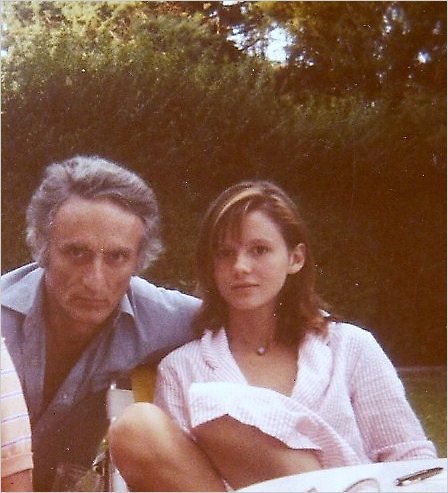
Recently, the biopic film Amy, sharing the life story of the late singer/songwriter Amy Winehouse, came out and caught the attention of many critics. Viewers’ main critique was that the actress looked nothing like Amy Winehouse. Biopic films take a real and widely adored individual and dramatasizes their life for the purpose of public entertainment. My favorite movies have been the ones that share the stories of my favorite singers such as Amy and Bohemian Rhapsody. But where do we draw the line of being entertaining and committing an art crime? There is nothing worse than when you are amped up about going to see a movie about your most loved artist or role model and the film ends up being really bad. Some even say that actors agree to do a biopic film because it is a money grab and not because they are artistically inspired. In an article titled, Why Biopics go so Wrong, it is brought to the reader’s attention how biopic films essentially diminish an artists creativity due to a concept called the imitation game. Artists are feeling creatively blocked due to needing to cram a certain amount of information into two hours and follow an exact script in order to be factually correct. This can lead to a disaster of a film and harms both artists involved in this story; the artist acting in the film and the original artist that the film is about. A poorly made movie can destroy the reputation of said famous person to the public eye. This shows two separate art crimes, 1). reducing an artist’s creativity and 2) ruining the memory of a late famous artist.
Biopic films may be seen as an art crime due to creating an environment for negative outlooks on the individual they made the movie for in the first place. Going back to the Amy example, critics stated that the actress who played Amy was not the right casting choice. In the same BBC article from above, the authors write about Nicole Kidman’s painfully obvious fake nose in The Hours (2002). This in itself turns what is supposed to be an artwork remembering a famous author into a comical failure. To continue, biopic films limit the creativity of an artist. The biggest problem discussed in the New York Times article is the idea that the artist has to imitate a different person instead of letting their creative juices flow. They cannot create the most interesting character in their entire career because they are following the script of the artist’s previous life. In this sense, Biopic films are an art crime to actors.
In addition, biopic films have the potential to completely butcher the artist’s life story and reputation. It is a possibility that the artist the film is about forever gets remembered as the famous actor who played her. For example, in Amelia Erhart’s biopic film, Amelia Erhart is now known as, “Hilary Swank wearing false teeth and talking in a funny voice” (Barber, 2021). This may seem like an exaggeration and those who haven’t even seen the film have not been influenced by the film in this way. However, even the possibility of an artist’s life story getting told wrongly and by someone who comically represents them is an art crime. In conclusion, biopic films are very entertaining and exciting when about your favorite artists, however, they can be a place for false information and wrongdoing.






worth it to take a minute to consider the implications of these not always thoughtfully executed dramatizations of real people’s lives. The term biopic encompasses a wide range of artistic endeavors, and varies greatly in terms of permission from the subject/their estate. This in particular makes me ponder the ethics of making a biopic if the family of the subject explicitly does not want the film to be made. Based on your article, proper casting and an accurate script are also important components in creating a good biopic.
I found this topic interesting and wish you would have dived deeper into a specific case study, but overall agree with the points you presented about the modern role of biopics. These films are meant as a tribute to their respective artists, but with modern audiences not always being as invested as the artists’ true fans the films must fulfill a second duty of accurately educating the audience on the target audience and the importance of their work. I believe it is this split in purpose that undermines these films and a lack of funding and inspiration on the part of their creators that causes them to fail, with making a film in this genre a difficult challenge to undertake.
This is an interesting perspective to biopics that I have not thought about. It makes sense that actors really have to follow a script in order to get the story correct, but it really does stifle creativity. I also think that most biopics that I saw were done by actors that people have not really heard of. There are so many famous actors who take on these movies, but are already a household name and are so recognizable. This is great in most movies until it is a biopic. You can not see them as anyone else but themselves. With the upcoming biopic on Bob Dylan played by Timothy Chalemete, I believe he will do a great job because he is a great actor, but I can not really see him as another character other than his really famous movies like Wonka, or even Dune. Biopics are hard to get right, but I do think that the most successful ones are from actors who are not famous.
I have really mixed opinions on biopic films. I have seen quite a few, and some of them I really enjoy, while others are so terrible that they really do change my perspective of the artist (and not in a good way). I think it is difficult to get a biopic right: not only do you have to ensure that the storyline is accurate to what really happened, but you have to capture the essence and personality of the individual while making it look genuine and paying tribute to the person’s life work. While reading your article, I found it surprising to hear that a lot of the times, actors agree to take the role because they care about the cash grab instead of being truly inspired by the artist, but now that I think about it, it does make sense. I think that is part of the reason why some biopic do not turn out well; it is because the audience can subconsciously tell that the actors do not truly care about the artist they are portraying, and therefore the artist themselves may not seem as inspirational or amazing as one had originally thought. I feel like the only instances in which a biopic should be made are not for cash grabs, but rather to use genuine inspiration and desire to tell an individual’s lifestory with accuracy and truth to make the audience understand the person’s real talent and legacy.